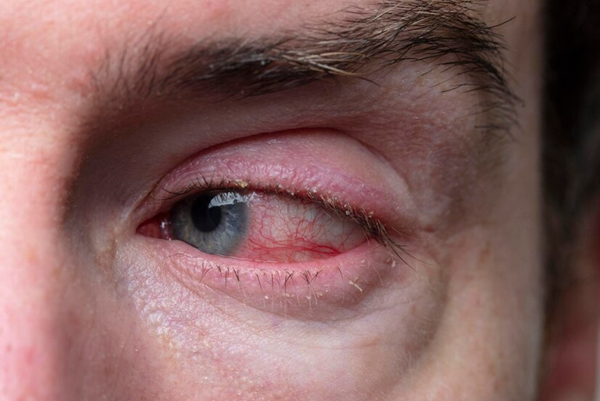It is called pink eye, a condition characterized by inflammation of the conjunctiva, which is the transparent, thin layer of tissue lining the inside of the eyelids and covers the white part of the eye. It is a frequent eye issue that can affect individuals of any age. Conjunctivitis is typically caused by either a viral or bacterial infection.
What are the Symptoms of Conjunctivitis?
Symptoms of conjunctivitis often include eye redness, itching, or burning sensations, along with watery eyes. In some cases, individuals may wake up with their eyes feeling sticky or crusty due to discharge, especially in bacterial cases. While the symptoms can be uncomfortable, they are generally not severe, but they can cause irritation and affect daily activities.
How Does Conjunctivitis Spread?
It is highly contagious and easily spread from person to person. The infection is transmitted through direct contact with someone infected, or with surfaces or objects, such as towels, pillows, or makeup, contaminated with bacteria or virus. For this reason, it is essential to practice good hygiene, such as frequent hand washing and avoiding eye contact. If you have conjunctivitis, refrain from sharing personal items like towels, pillows, or cosmetics, and avoid wearing contact lenses until the infection clears.
What is the Treatment for Conjunctivitis?
Treatment for conjunctivitis largely depends on the cause. For mild cases, over-the-counter artificial tears or lubricating eye drops can be helpful in reducing redness and soothing irritation. For bacterial conjunctivitis, prescription antibiotic eye drops or ointments may be necessary, while steroid eye drops are sometimes prescribed to reduce inflammation in severe cases. It is crucial to follow the prescribed course of treatment to ensure the infection does not persist or spread to others.
When Should You See a doctor?
Conjunctivitis usually resolves on its own within a few days. However, if symptoms worsen, if pain intensifies, or if you experience any changes in vision, it is important to consult your doctor. Early medical attention can prevent complications and help with a faster recovery.


